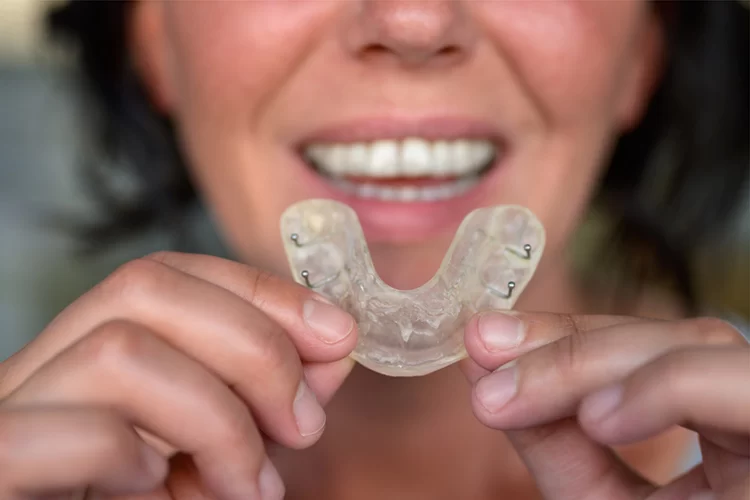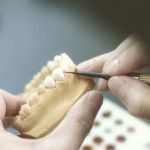
- 1-Understanding Teeth Grinding and Its Impact on Bite Issues
- 2-Symptoms of Bite Issues Caused by Teeth Grinding
- 3-Treatment Options for Bite Issues from Teeth Grinding
- 4-Real-Life Stories of People Treating Bite Issues
- 5-Tips for Preventing Teeth Grinding and Bite Issues
1. Understanding Teeth Grinding and Its Impact on Bite Issues
Teeth grinding, also known as bruxism, is a common condition that involves the involuntary grinding or clenching of teeth, often during sleep. While it may seem harmless, prolonged teeth grinding can have serious consequences for your dental health, including the development of bite issues. These issues occur when the alignment of your teeth is altered due to the pressure exerted by grinding. Over time, this can cause the teeth to become worn down, the jaw to shift, and the bite to become misaligned, leading to discomfort and difficulty chewing.
2. Symptoms of Bite Issues Caused by Teeth Grinding
Bite issues resulting from teeth grinding can manifest in several ways. The symptoms often depend on the severity of the grinding and the extent of the damage caused. Common signs of bite issues include:
- Jaw Pain: One of the most common symptoms, jaw pain, can occur due to the excessive pressure caused by grinding. This may result in difficulty opening the mouth or chewing food.
- Tooth Sensitivity: Grinding can wear down the enamel, making the teeth more sensitive to hot, cold, or sweet foods.
- Headaches: Frequent headaches, especially in the morning, may be a result of grinding, as the jaw muscles become tense from constant clenching.
- Teeth Wear and Tear: Over time, grinding can cause visible damage to the teeth, such as flattening, chipping, or cracking.
- Clicking or Popping Jaw: A misaligned bite due to grinding may cause the jaw to make clicking or popping sounds when opening or closing the mouth.
Recognizing these symptoms early on is crucial in preventing further damage to your teeth and jaw.
3. Treatment Options for Bite Issues from Teeth Grinding
There are several treatment options available for addressing bite issues caused by teeth grinding. The right treatment depends on the severity of the symptoms and the underlying causes of the grinding. Some common treatments include:
- Mouthguards: A custom-fitted mouthguard is one of the most effective ways to protect your teeth from grinding. Mouthguards create a barrier between your upper and lower teeth, preventing wear and tear and reducing the pressure placed on your jaw.
- Orthodontics: If grinding has caused significant misalignment, orthodontic treatment (such as braces or Invisalign) may be necessary to correct the bite and improve overall dental alignment.
- Stress Management: Since stress is a common trigger for teeth grinding, incorporating relaxation techniques, such as meditation or yoga, can help reduce the frequency of grinding.
- Dental Restorations: In severe cases, dental restorations such as crowns or bonding may be necessary to repair teeth that have been damaged by grinding.
- Physical Therapy: If jaw pain is significant, physical therapy or jaw exercises may help relieve muscle tension and restore proper function to the jaw.
Consulting with a dentist or dental specialist is essential to determine the best treatment option for your specific case.
4. Real-Life Stories of People Treating Bite Issues
Many individuals have successfully addressed bite issues caused by teeth grinding with the help of appropriate treatments. For example, Sarah, a 35-year-old teacher, noticed significant jaw pain and headaches that were affecting her daily life. After consulting with her dentist, she was diagnosed with teeth grinding. Sarah was fitted with a custom mouthguard, and her symptoms dramatically improved within weeks. She no longer experienced daily headaches and could sleep better at night.
Another example is Tom, a 42-year-old mechanic, who had been dealing with significant tooth wear due to grinding. After using a mouthguard and undergoing orthodontic treatment to realign his bite, he was able to restore the function of his teeth and significantly reduce jaw pain. Tom's story highlights the importance of addressing bite issues early on to prevent long-term dental and emotional consequences.
5. Tips for Preventing Teeth Grinding and Bite Issues
While treatment is essential for addressing bite issues, preventing teeth grinding in the first place is equally important. Here are some tips to help prevent grinding and minimize the risk of bite issues:
- Manage Stress: Since stress is a common cause of teeth grinding, finding ways to manage stress, such as through relaxation exercises or therapy, can significantly reduce grinding.
- Establish a Sleep Routine: Ensuring that you get a good night's sleep is essential for preventing teeth grinding. Practice good sleep hygiene and avoid caffeine or heavy meals before bedtime.
- Avoid Stimulants: Reducing or eliminating the consumption of alcohol, caffeine, and nicotine can help decrease the likelihood of grinding, as these substances can increase muscle activity and stress levels.
- Visit Your Dentist Regularly: Regular dental visits can help detect early signs of teeth grinding and bite issues, allowing for prompt intervention before significant damage occurs.
By implementing these preventative measures, you can protect your teeth from the long-term effects of grinding and ensure a healthy, pain-free bite.







 Dr. Sam Saleh4.0 (37 review)
Dr. Sam Saleh4.0 (37 review) Cooley Smiles Everett4.0 (795 review)
Cooley Smiles Everett4.0 (795 review) Gulf Coast Advanced Dentistry4.0 (317 review)
Gulf Coast Advanced Dentistry4.0 (317 review) Dentist Of Wyckoff NJ0.0 (0 review)
Dentist Of Wyckoff NJ0.0 (0 review) Midjersey Family Dentistry4.0 (86 review)
Midjersey Family Dentistry4.0 (86 review) West Nyack Dental2.0 (85 review)
West Nyack Dental2.0 (85 review) The Importance of Oral Health Education During Pregnancy for a Healthy Pregnancy
The Importance of Oral Health Education During Pregnancy for a Healthy Pregnancy Best Tips for Brushing Your Teeth Properly for Healthy Gums: Essential Techniques for Oral Health
Best Tips for Brushing Your Teeth Properly for Healthy Gums: Essential Techniques for Oral Health Why Skipping Dental Checkups Can Lead to Bigger Oral Health Problems
Why Skipping Dental Checkups Can Lead to Bigger Oral Health Problems Advantages of Porcelain Dental Restorations
Advantages of Porcelain Dental Restorations How Can Diabetes Cause Tooth and Gum Problems? Preventing and Managing Oral Health Issues
How Can Diabetes Cause Tooth and Gum Problems? Preventing and Managing Oral Health Issues Healthy Habits for Promoting Good Oral Health and Hygiene: Tips for a Healthy Smile
Healthy Habits for Promoting Good Oral Health and Hygiene: Tips for a Healthy Smile